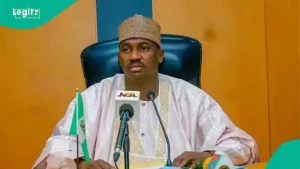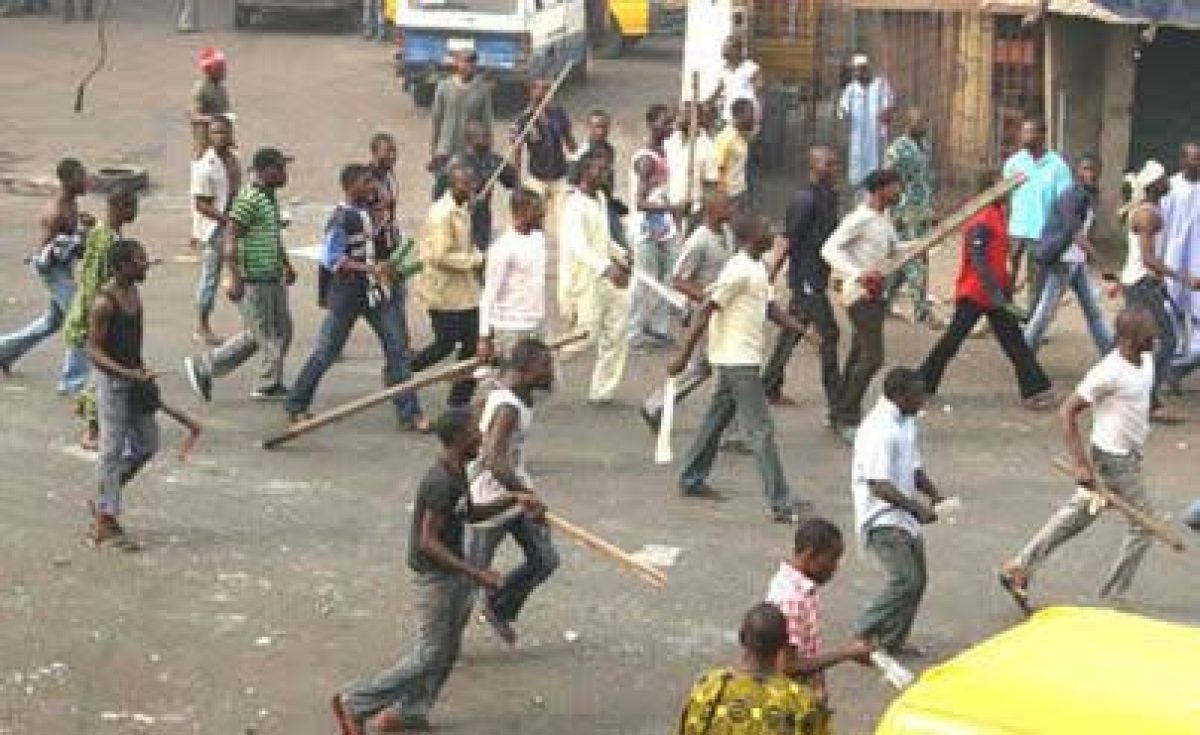Sokoto Residents React to Claims of French Military Presence in Nigeria: Unveiling the Truth Behind the Speculation

Sokoto Residents React to Claims of French Military Presence in Nigeria: Unveiling the Truth Behind the Speculation
In the midst of rising concerns over foreign military influence in Africa, a new claim has emerged, capturing the attention of residents in Sokoto, Nigeria. Allegations have surfaced suggesting that the French army may be operating within Nigeria’s borders, a claim that has stirred emotions and curiosity alike. As whispers grow louder, the question remains: Is there any truth to these reports, or are they merely the latest in a long line of geopolitical speculation? In this article, we delve into the claims, reactions from Sokoto residents, and the broader implications for Nigerian sovereignty.
The claims of French military involvement in Nigeria came to light through social media posts and rumors circulating among local communities. The reports described the sudden appearance of foreign soldiers in various parts of the country, particularly in the northwest. These soldiers were alleged to be part of a covert mission, possibly linked to Nigeria’s ongoing security issues in the region. But how did these claims gain such traction, and who are the individuals fueling this narrative? We explore the origins of the rumors and why they have captured the public’s imagination.
As one of Nigeria’s key northern states, Sokoto holds significant cultural, religious, and political importance. It is home to a large Muslim population and has been at the center of several national security debates, especially concerning the activities of insurgents and bandits. Naturally, when the claims of French soldiers surfaced, the residents of Sokoto were quick to react. In this section, we hear from locals—both in Sokoto city and rural areas—about their thoughts on the rumors. Are they convinced by the reports, or do they believe this is just another conspiracy? We also look at how local leaders and authorities are addressing the issue and whether they are taking any action to investigate further.
To fully understand the gravity of these claims, it’s important to consider France’s historical and current involvement in West Africa. The French government has long been accused of maintaining a strong influence over former colonies, often through military and political means. But does this have any bearing on Nigeria? While France is not a neighbor of Nigeria, its military presence is not unprecedented in the region, especially in countries like Mali and Niger. This section explores France’s military footprint in West Africa, highlighting the nature of their operations and whether such a presence could extend to Nigeria. Could these rumors be based on actual French military operations, or are they simply a misunderstanding?
Sovereignty is a sensitive issue for any nation, and the idea that foreign military forces might be operating within Nigeria’s borders without government consent is a serious matter. In this section, we analyze the potential consequences of such a presence, both from a security and political standpoint. How would the Nigerian government respond to foreign military incursions? What does this mean for Nigeria’s security strategy, especially as it faces internal conflicts like Boko Haram, banditry, and terrorism? We also explore how these claims could affect Nigeria’s relationships with other international powers, particularly France and its allies.
In an age of misinformation and fake news, it’s essential to examine the available evidence with a critical eye. What do security experts and analysts say about the claims of French military activity in Nigeria? Are there any verified reports or intelligence that support these rumors, or are they simply unfounded allegations? In this section, we gather insights from military analysts, political commentators, and diplomatic experts to separate fact from fiction. We also consider the role of the Nigerian military in responding to such rumors and whether they are taking proactive steps to investigate the issue.
While the claim of a French military presence in Nigeria has captured the public’s attention, the truth remains elusive. As we’ve seen from the reactions of Sokoto residents, as well as the examination of France’s role in the region, the situation is complex and multifaceted. Without concrete evidence or official confirmation, these claims should be treated with caution. Nevertheless, the rising speculation underscores the importance of national sovereignty and the need for transparency in international affairs. As Nigeria continues to navigate its security challenges, the question of foreign influence remains an important topic, one that deserves ongoing scrutiny and investigation. The conversation is far from over, and it will likely continue to evolve as more information surfaces in the coming weeks and month’s
!!!
-
 ID Cabasa featuring Bella Shmurda, Ayo Maff, and Ajebo Hustlers – Anytime Reimagined
ID Cabasa featuring Bella Shmurda, Ayo Maff, and Ajebo Hustlers – Anytime Reimagined
-
 Ceezay Yung – 4AM + Acho M’ego
Ceezay Yung – 4AM + Acho M’ego
-
 Frenzyoffixial Ft AirBoy – Valenciana
Frenzyoffixial Ft AirBoy – Valenciana
-
 Eli Jae Prepares Debut Album with New Single ‘Your Body’
Eli Jae Prepares Debut Album with New Single ‘Your Body’
-
Akiib – Omo Oloja
-
 Drescott Makes career Come-back with 2 Awesome singles “Trinidad & Sign” ft. Godkenan
Drescott Makes career Come-back with 2 Awesome singles “Trinidad & Sign” ft. Godkenan
-
 BIGKPLUS – Carlifornia
BIGKPLUS – Carlifornia
-
 Fvreign – Feeling You
Fvreign – Feeling You
-
 ShugaVanilla’s Soulful Cover of “Waiting in Vain”
ShugaVanilla’s Soulful Cover of “Waiting in Vain”
-
 Stanley Abalu – It Shall Be Well
Stanley Abalu – It Shall Be Well
-
 Mo Eazy Unveils His Deeply Spiritual and Transformative EP ‘Ibẹrẹ’—Featuring the Uplifting Lead Single ‘Teriba’
Mo Eazy Unveils His Deeply Spiritual and Transformative EP ‘Ibẹrẹ’—Featuring the Uplifting Lead Single ‘Teriba’
-
 Ego Fire – Bololo
Ego Fire – Bololo
-
 Prophetess Chinwendu Israel – Ihe Inyoro Chukwu
Prophetess Chinwendu Israel – Ihe Inyoro Chukwu
-
 JAYO Records Announces the Release of Frenzyoffixial’s New Single “Cigarette” — A Raw and Emotional Exploration of Love and Escape
JAYO Records Announces the Release of Frenzyoffixial’s New Single “Cigarette” — A Raw and Emotional Exploration of Love and Escape
-
 Humblesmith Featuring Umu Obiligbo -Bolingo
Humblesmith Featuring Umu Obiligbo -Bolingo
-
 Frenzyoffixial – Cigarette
Frenzyoffixial – Cigarette
-
 KanBuja Ft. Monstarrboi – Kanbuja
KanBuja Ft. Monstarrboi – Kanbuja
-
 Rhedi – I Need
Rhedi – I Need
-
 Music: P-Rex – I get God Ft Derry
Music: P-Rex – I get God Ft Derry
-
 Bpm Boss – Omo Ologo (Prod By Tite Tunez)
Bpm Boss – Omo Ologo (Prod By Tite Tunez)
Do you find Tmaq Media useful? Click here to give us five stars rating!





